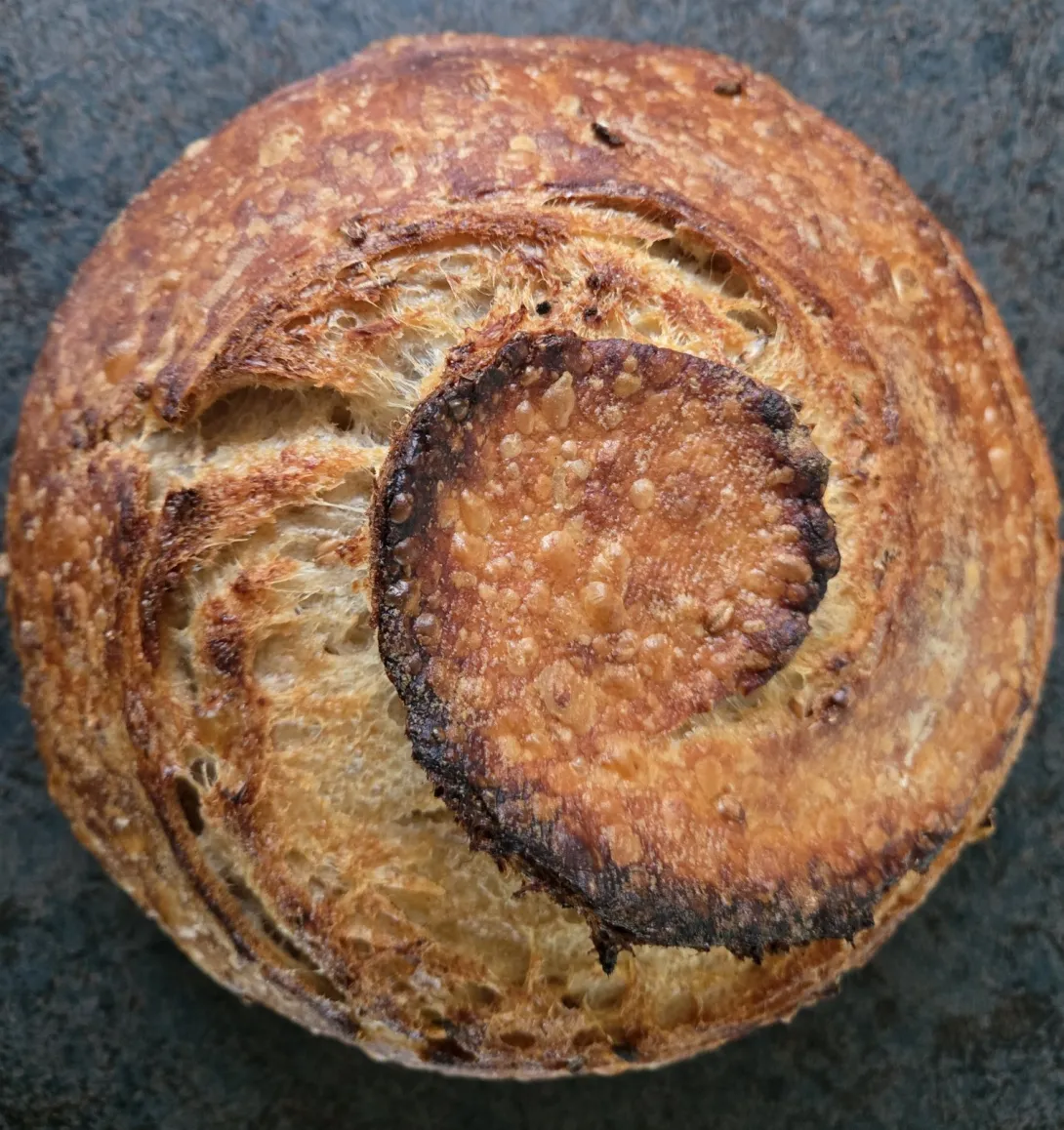
A quick post to celebrate the arrival of Autumn and the passing of yet another summer. This one is a variation of my November 2019 post, bread baked then to welcome the arrival of that year's CSA organic grain harvest share. Now, as then, feeling very blessed and appreciative, especially in these turbulent times, for yet another harvest.
I pre-fermented some sprouted organic Marquis wheat, rye and a handful of barley, about 150 g total, mixed with 100 g oat porridge and 200 g young levain; left at room temperature for about 6 hours. For the dough I milled some Marquis wheat and sifted it to yield 100 g flour; this was mixed with 1000 g organic all pupose flour and 880 g water and left at room temperature. After 2 hours I mixed in 20 g sea salt and then the pre-ferment. The bulk fermentation took about 5 hours with four stretch/folds over the first two hours; when the dough had risen about 45% I pre-shaped the loaves and left them for 30 minutes before final shaping. I felt the dough was a little sluggish so I left the finished loaves in the bannetons on the counter at room temperature for another hour before cold proofing overnight for 12 hours. I baked them in Dutch ovens, covered for 20 minutes, 500F, then 10 minutes at 450F and finished them out on a baking stone at 450F for 20 minutes.
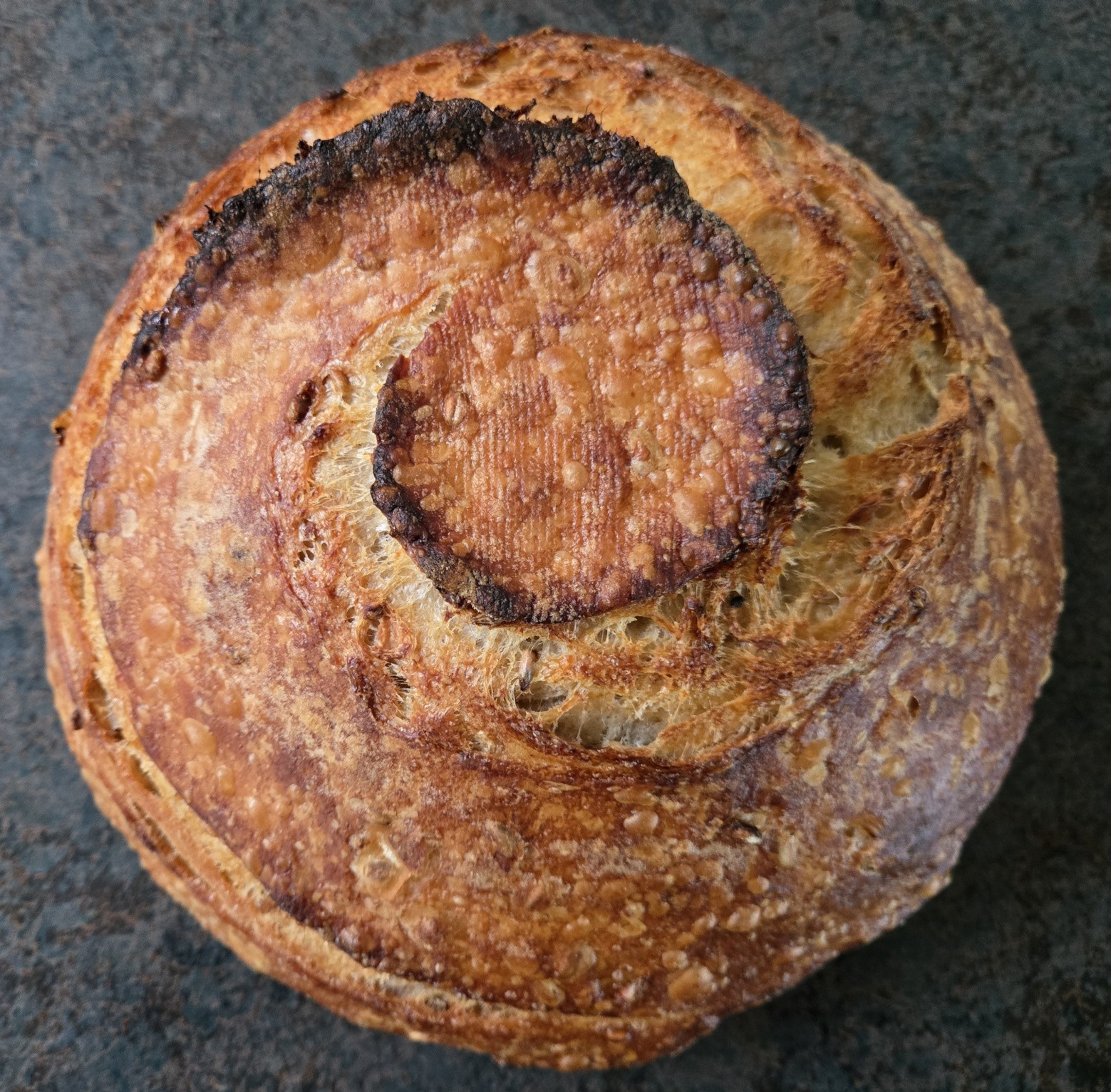
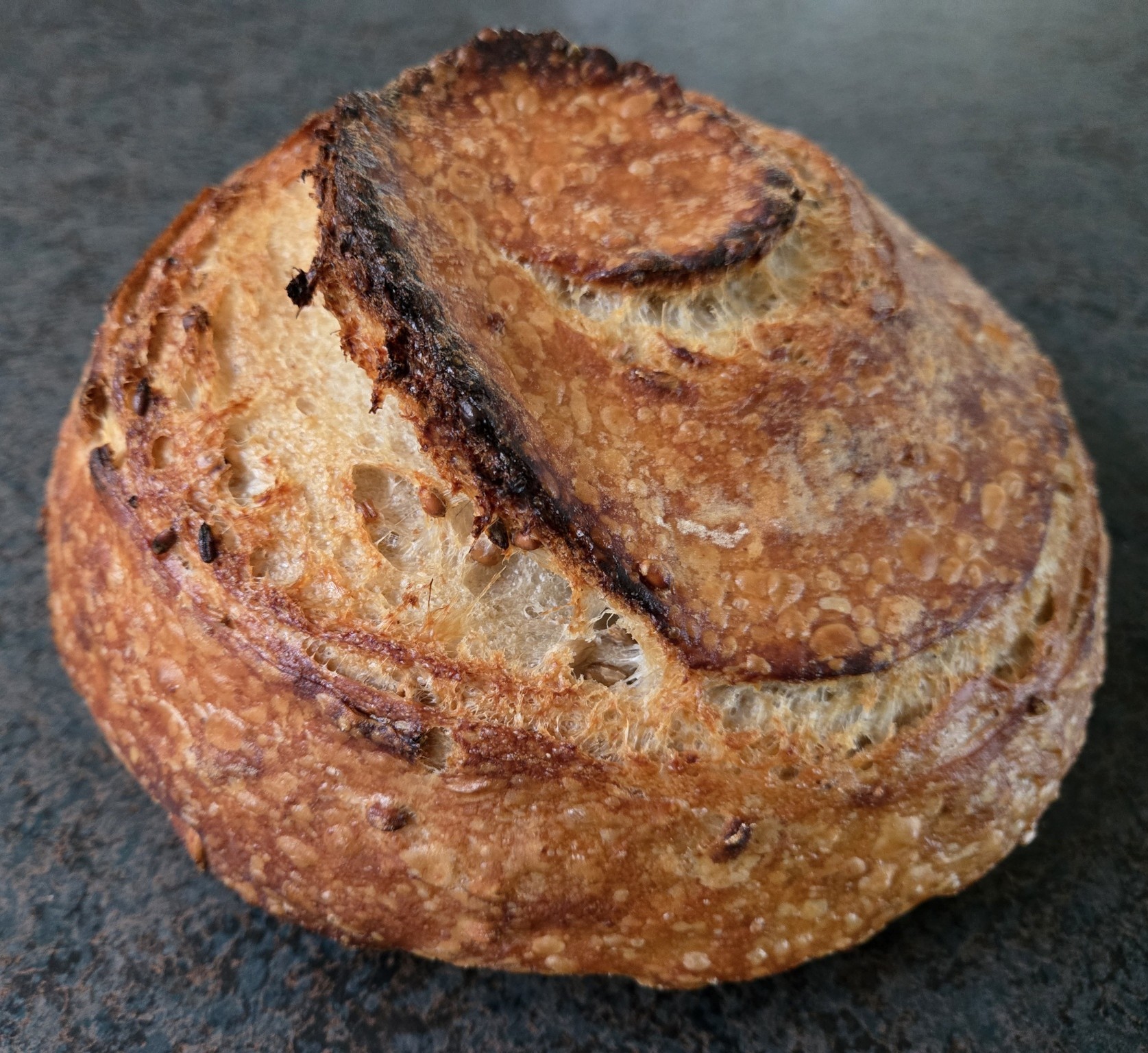
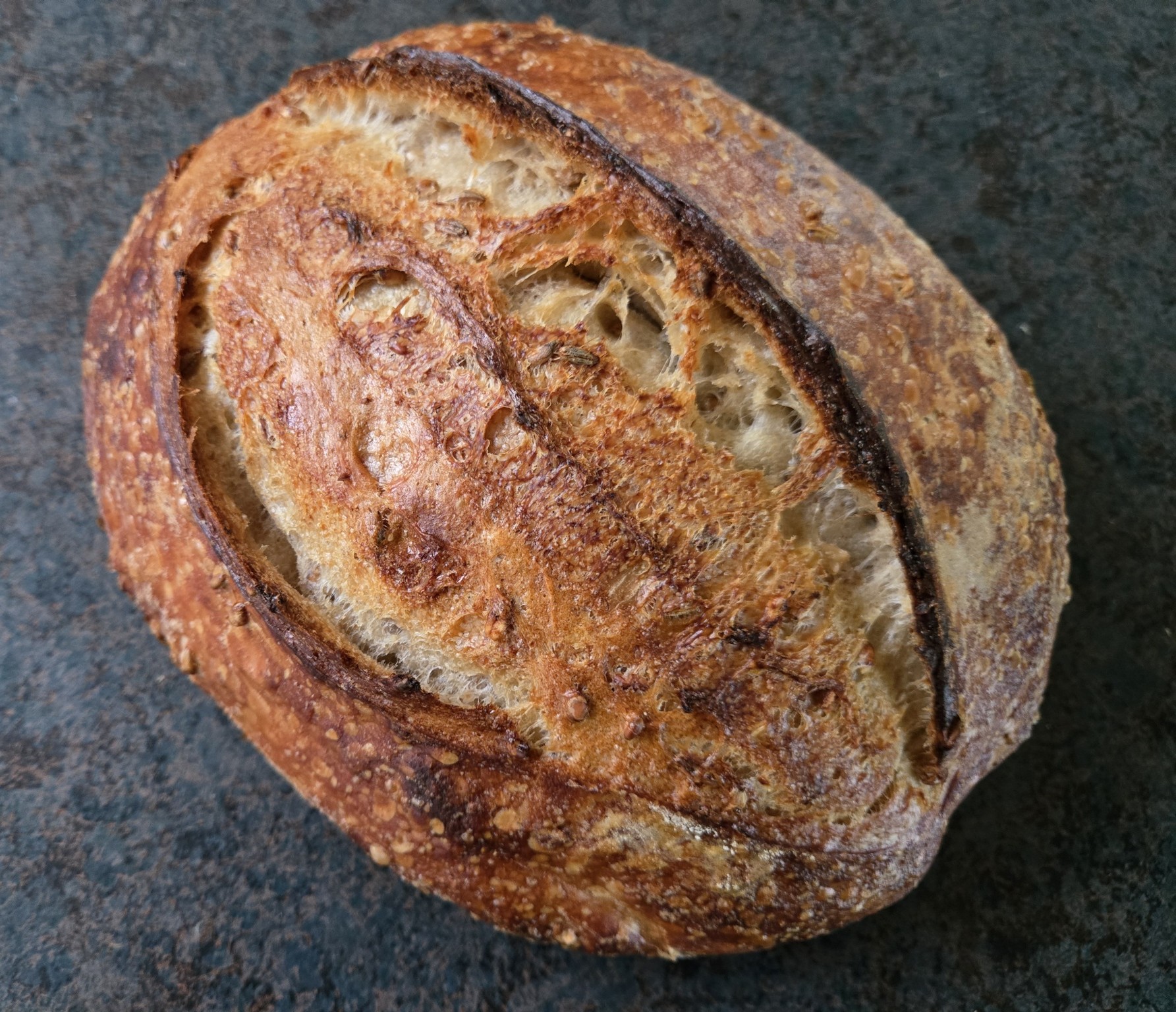
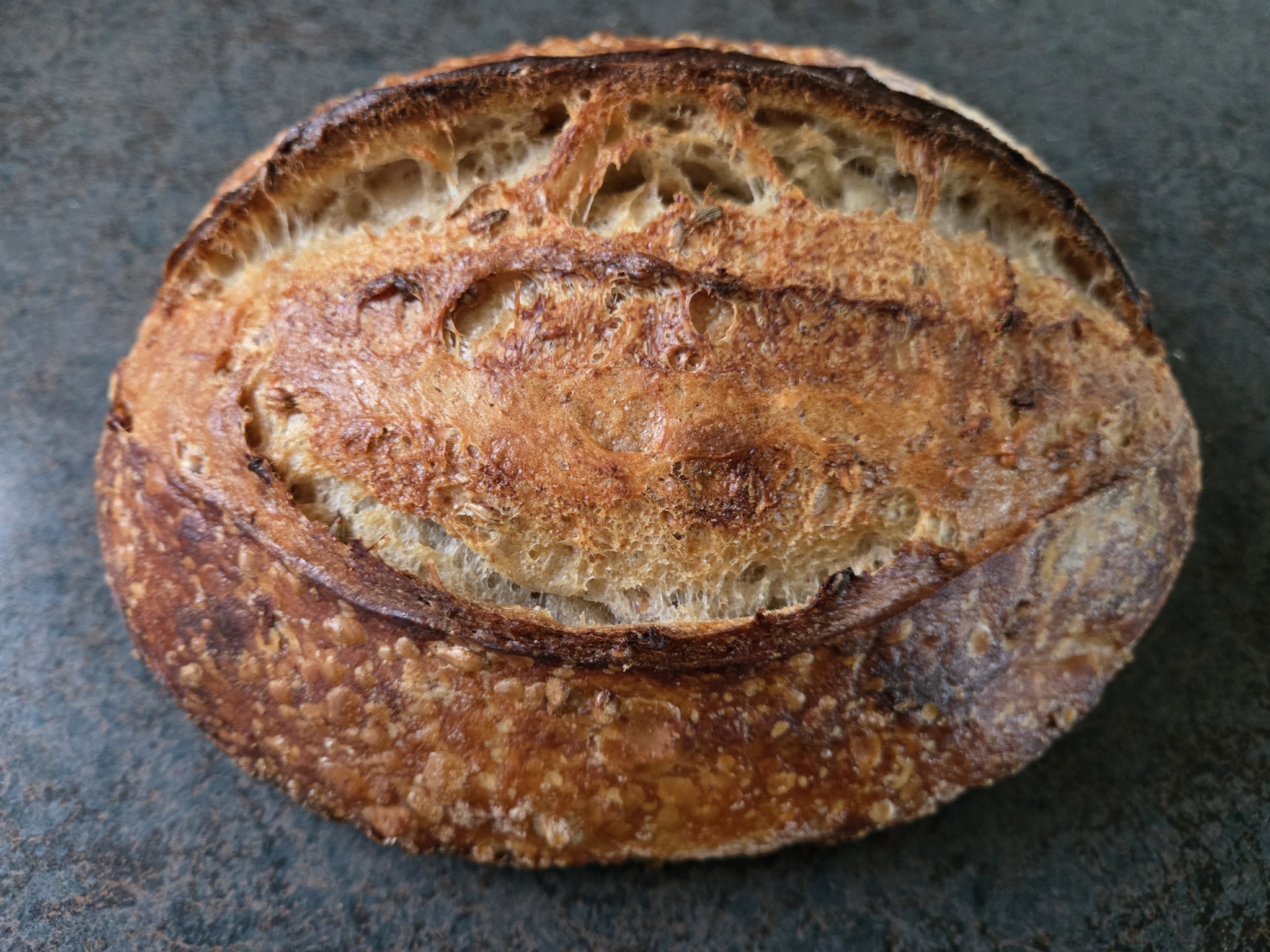
* For this bake I revisited what I call my "Spiral Galaxy" scoring cut for the boule. For those of you interested, this the JWST/NASA image that first inspired the scoring pattern...https://esawebb.org/images/potm2208a/
M74 Spiral Phantom Galaxy 
- Cedarmountain's Blog
- Log in or register to post comments
A galactic success. So glad to see a post from you. I have my Marquise grains out again this week for a Pullman. I’m duplicating from last week. I got Marquise because of your mentioning it in the past. It’s a wonderful flour. Thank you for sharing the formula.
I don’t know how to sprout grains but perhaps I will give it a try. c
Hi Caroline, glad you were able to get some Marquis wheat! It's a very nice flour, lots of protein and strong gluten content for baking some tasty bread. Being a heritage grain it's not as widely available as the more current commercial wheat grains but a treat if you can find some. As for sprouting grains, it's really easy...just need to rinse and drain the grain, put it in a big mason jar, cover with a piece of cheese cloth or perforated lid, keep the jar in a warm spot and keep the grain moist for a few days. Watch for the sprouts at the tip of the grain berries. You can dry the sprouted grains and mill them or use them whole or mashed as additions to your bread. Thanks for checking in on my post, will watch for your Marquis bread and maybe a sprouted grain bread too!
Ian introduced them to TFL and I’ve purchased from them ever since. They regularly have Marquise.
Thank you for the tips on sprouting. Do you just toss the dry grain the first time in water or does it need to be done daily to keep them moist? How long does it usually take?
I think I’ll give it a try. Thank you. c
I soak them for a little while and put them in a strainer and drain the water and cover them with a paper towel. Depending on the grain it could take a day or longer but you just want to keep them moist. You can rinse and repeat but usually once does the trick. The hardest part is to make sure once they start sprouting if using for flour you have to thoroughly dry them. If not you will clog up your mill.
I have a big dehydrator I use which has multiple shelves to dry the grains, you have to make sure not to dry them on too high of a temperature or you will make malt and not flour. Before the dehydrator I would put them in a sheet pan and use a fan to dry them out.
I’m thinking toast them lightly and cook as porridge to add to the a Pullman loaf . What do you think?
If you do that let them sprout much more. Give it a try and see how you like it.
Prolonged sprouting increases the amylase activity in the wheat to the level of malt. After two, and especially three days, the amylase activity in the wheat increases dramatically. The main difference between sprouted flour and malt is the length of the germination period.
Diastatic power: malt vs sprouted flour
Many malts are lightly kilned to retain the diastatic power. Other malts are highly kilned, toasted, or even roasted to increase color and flavor; these malts will usually have no diastatic power because of the prolonged high temperature of the process.
I will just sprout lightly and then toast in a skillet and make a porridge. Or I’ll dry them and flake , toast and make a soaker. Lots of options.
I have a 2.5 # unopened bag of Marquise so plenty to experiment with. 🙏
Great to see a post from you. What a bake and with the sprouted flour it must taste amazing. Funny, I was just cleaning around my dehydrator that I use to dry the sprouted grains and was planning on sprouting some grains soon.
Happy baking!
Ian
David, fantastic loaves, I especially love the blistered crusts.
Benny